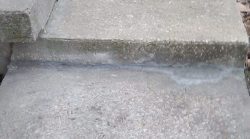Regular foundation inspections are essential for maintaining the structural integrity of your home. The foundation serves as the backbone of your house, and any issues can lead to costly repairs and compromised safety. Understanding the factors that determine the need for regular inspections can help you safeguard your home’s stability and address potential problems before they escalate. In this blog post, we will explore what determines the need for regular foundation inspections and the benefits they provide.
Age of the House:
The age of your home is a key factor in determining the need for regular foundation inspections. Older homes, especially those built several decades ago, may have foundations that have experienced wear and tear over time. As a result, they are more susceptible to settlement, cracks, or other structural issues. Regular inspections for older homes are crucial to identify and address any potential foundation problems early on.
Climate and Soil Conditions:
The climate and soil conditions in your region play a significant role in the health of your home’s foundation. Extremes in temperature, moisture fluctuations, and poor soil quality can impact the stability of the foundation. Areas with expansive soils, such as clay soils that expand and contract with moisture levels, are particularly prone to foundation movement. Regular inspections in regions with challenging soil conditions can help detect and address any issues arising from these factors.
Previous Foundation Repairs:
If your home has undergone foundation repairs in the past, regular inspections are crucial to monitor the effectiveness of those repairs and ensure their long-term stability. Over time, changes in soil conditions or other external factors can affect the repaired foundation. Regular inspections allow professionals to assess the condition of the repaired areas and identify any new issues that may have emerged.
Visible Signs of Foundation Problems:
Visible signs of foundation problems should prompt immediate action and regular inspections. Look out for signs such as cracks in the walls, doors or windows that stick or don’t close properly, sloping or uneven floors, or gaps between walls and ceilings. These signs may indicate underlying foundation issues that require professional attention. Regular inspections can help identify the root cause of these symptoms and prevent further damage to your home.
Nearby Construction or Environmental Factors:
Construction activities, nearby excavation, or environmental factors like nearby trees can impact the stability of your home’s foundation. Vibrations from heavy machinery or changes in the water table due to nearby construction can lead to foundation movement. Trees with large roots close to the foundation can cause soil shrinkage or create pressure against the foundation walls. Regular inspections are necessary to monitor the effects of these external factors and address any resulting foundation issues.
Regular foundation inspections are crucial for maintaining the stability and safety of your home. Factors such as the age of the house, climate and soil conditions, previous repairs, visible signs of foundation problems, and nearby construction or environmental factors determine the need for regular inspections. By addressing any foundation issues promptly, you can prevent further damage, reduce repair costs, and ensure the long-term stability of your home.





